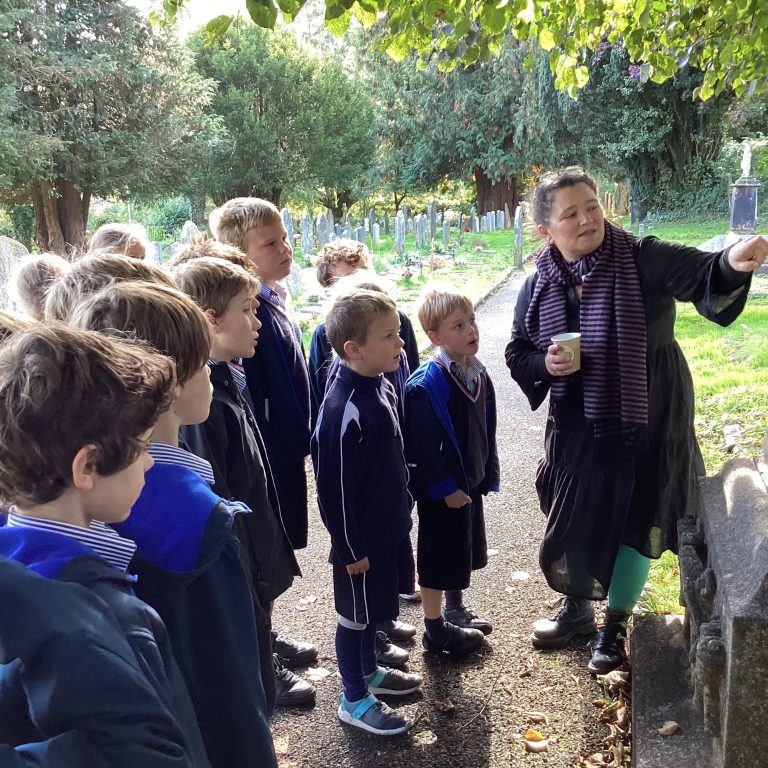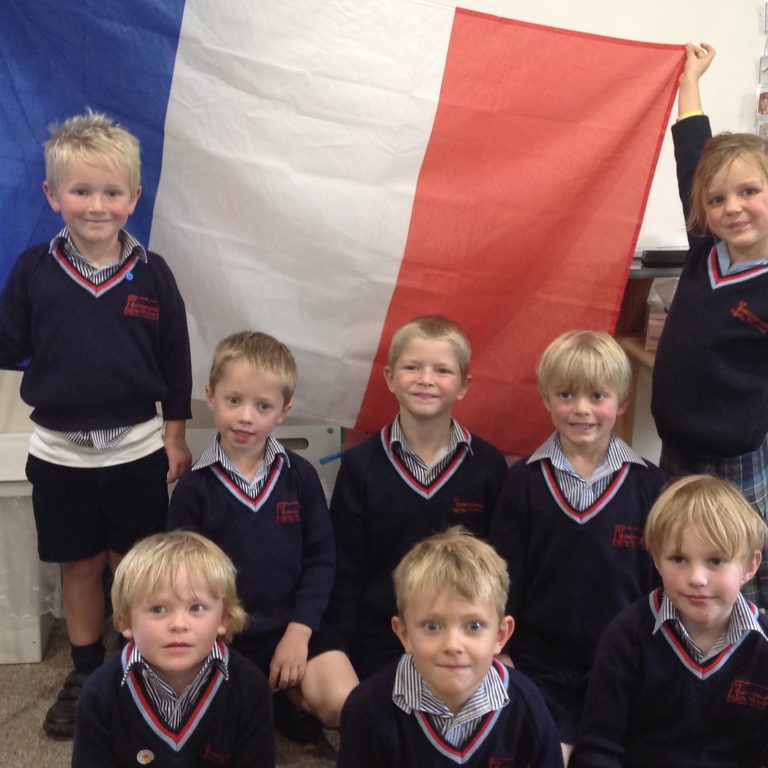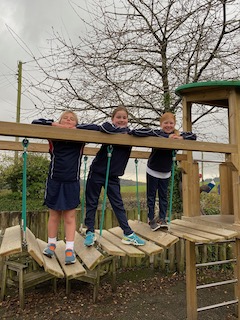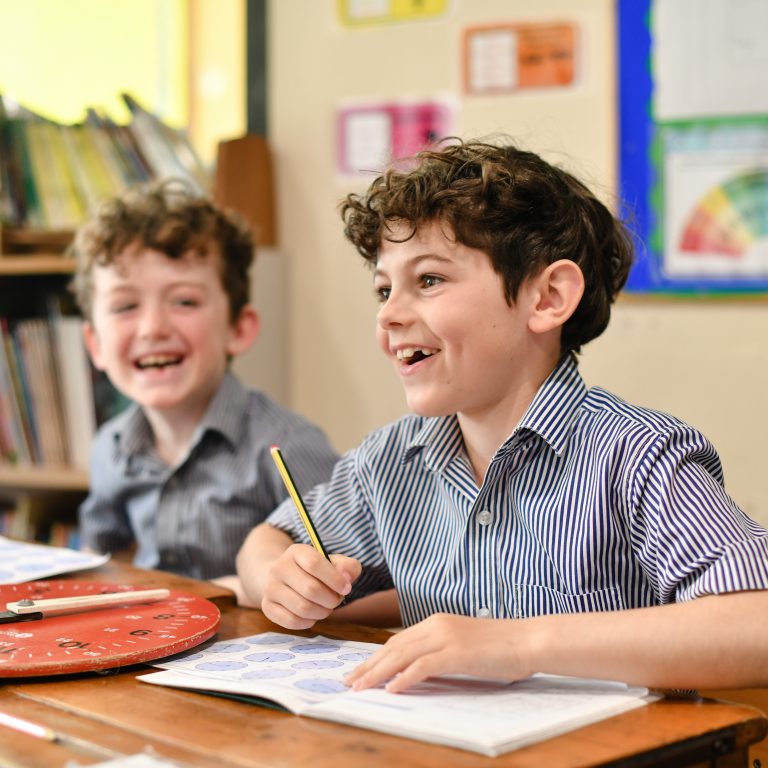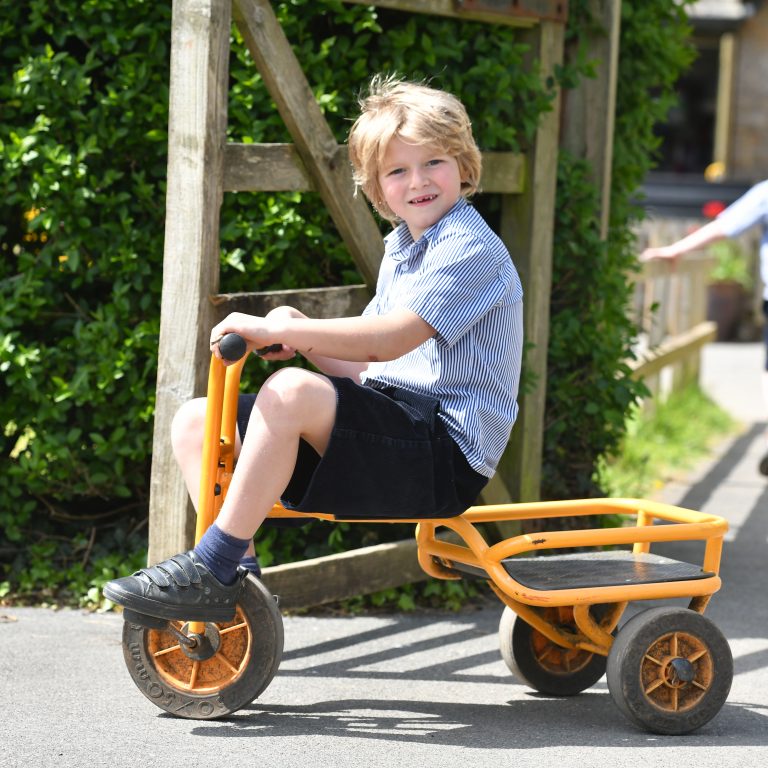How do we bring about play at St Christophers?
Play is essential for children’s development, building their confidence as they learn to explore, relate to others, set their own goals, and solve problems. Children learn by leading their own play, and by taking part in play which is guided by adults. Our EYFS staff decide what we want the children to learn and the most effective ways to teach it. By providing well planned experiences based on the children’s spontaneous play, both indoors and outside we support them to learn with enjoyment and challenge and to ‘have a go.’ EYFS staff aim to stimulate the children’s interests, responding to each child’s emerging needs and guiding their development through warm, positive interactions coupled with secure routines for play and learning.
What is play?
Play in the Early Years Foundation Stage is often used to encourage aspects of children’s learning and development while they are having fun. Through play, children develop language skills, their emotions and creativity, social and intellectual skills.
Play takes place indoors and outdoors and it is in these different environments that children explore and discover their immediate world. It is here they practise new ideas and skills; they take risks, show imagination, and solve problems on their own or with others. Teachers provide time and space and appropriate resources. These might include dressing up, boxes, buckets, old blankets that will inspire play and fire children’s imaginations.
Why play?
Play can extend certain areas of their learning – for example, developing language skills by promoting talk between children or introducing new vocabulary that they use and act out in their play. For example, role playing different jobs, looking at an Xray, diagnosing a broken arm and pretending to bandage it up. Such a playful approach to learning builds on children’s interests and responds to their ideas for play and allows scope for structured activities to teach specific skills and knowledge.
What do children learn through play?
Children make sense of the world through play. It is integral to children’s development of language skills, social skills, intellectual and emotional intelligence. Through play, children develop problem-solving skills, imagination and creativity, language, and observation skills. They learn to test their theories about the world and their place in it.
For example, while children are playing, they can try out new social skills (e.g., sharing toys, agreeing on how to work together with materials), and they often take on some challenging cognitive tasks (such as figuring out how to make a building with smaller blocks when the larger ones are not available). Children are ‘hands-on’ learners. They acquire knowledge through playful interaction with objects and people.
Through play, children learn to forge connections with others, and to share, negotiate and resolve conflicts, as well as learn self-advocacy skills. Furthermore, play is a natural tool that children can use to build their resilience and coping skills, as they learn to navigate relationships. The critical skills that children acquire through play in the Early Years form part of the fundamental building blocks of future skills.
(article peer reviews by Mrs Alexandra Cottell, headmistress at St Christopher’s)
References:
Learning Through Play at https://www.unicef.org/sites/default/files/2018-12/UNICEF-Lego-Foundation-Learning-through-Play.pdf
Learning Through Play: What the Science Says at https://learningthroughplay.com/explore-the-research/the-scientific-case-for-learning-through-play
Why play matters at https://www.familylives.org.uk/advice/early-years-development/learning-and-play/why-play-matters

